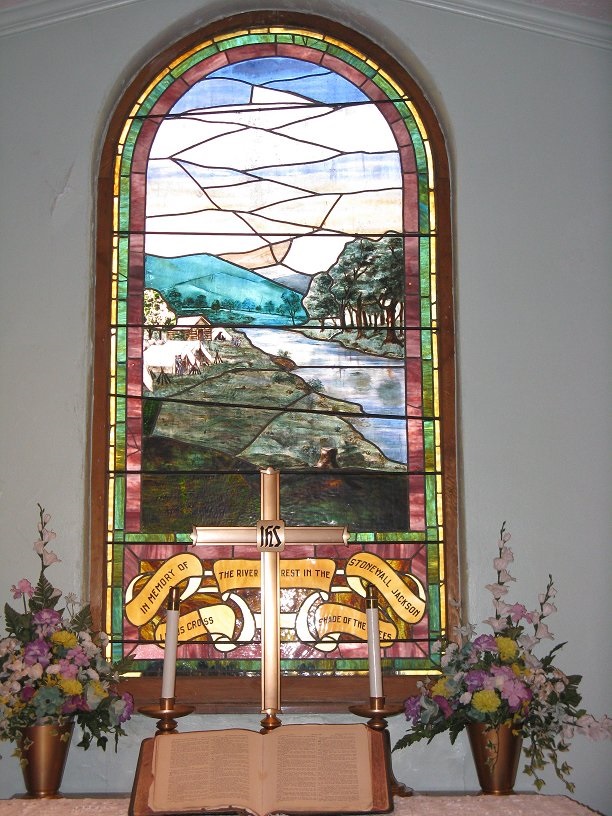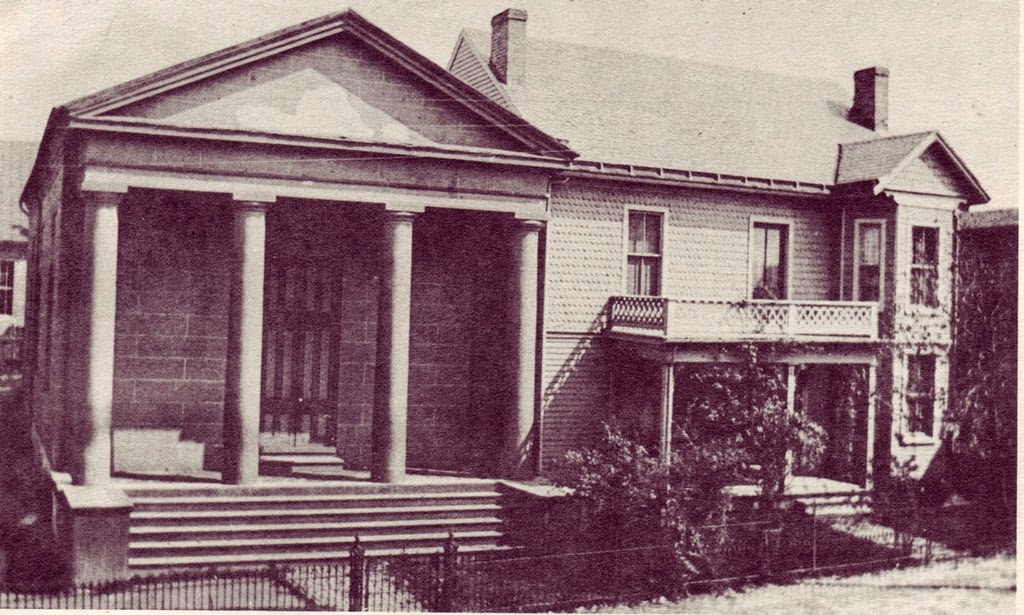Stonewall’s Sabbath School
Today, we are pleased to welcome back guest author Michael Aubrecht

Throughout the 1800s, the South’s practice of slavery caused a great contradiction among many southern slave holders. The master-slave relationship was fraught with emotional and moral contradictions. This dilemma was very evident in the life of Thomas Jackson.
Many conclude that even fervent believers like Jackson and his Christian contemporaries propagated racism and likely felt that slavery was according to God’s will. In other words, they did not oppose it. Many southerners, religious or otherwise, fostered the belief of the inferiority of the African race. To them, the institution of slavery was routine.
Jackson owned slaves, and members of his family did too. He remained faithful to Miss Fanny, a slave who raised him. Perhaps it was his doting relationship with his nanny and God’s command of “love thy neighbor” that called him to treat slaves humanely. Jackson’s six slaves were named Hetty, Cyrus, George, Albert, Amy and Emma. Some of them were presented to Jackson as gifts while others worked toward earning their freedom.
In “Stonewall Jackson: The Man, the Soldier, the Legend,” James Robertson speculated about Jackson’s view on slavery. He wrote, Jackson neither apologized for nor spoke in favor of the practice of slavery. In his mind the Creator had sanctioned slavery and man had no moral right to challenge its existence. He added, The good Christian slaveholder treated his servants fairly and humanely at all times.
With that in mind, it is not shocking that Jackson organized Sunday school classes for free and enslaved blacks at the local Lexington Presbyterian Church. Jackson established the distinctive school in the mid-1850s. The structure that housed the school sat next to the main church sanctuary and consisted of one large room. Although some members of the Lexington community expressed concern, enough community members supported the school and allowed their slaves to attend. It wasn’t legal in Virginia at that time to teach slaves to read and write, but Jackson defied that directive. In order to conduct bible studies he had to do so.
In the “Memoirs of Stonewall Jackson, By His Widow Mary Anna Jackson” it recalls, His interest in that race was simply because they had souls to save and he continued to instruct them with great faithfulness and success up to the breaking-out of the war…This school was held in the afternoon of the Sabbath; its sessions were short and spirited, and he soon infused interest and punctuality into both teachers and pupils.

The pastor, Dr. William Spottswood White, described the relationship between Jackson and his Sunday afternoon students. He wrote, In their religious instruction he succeeded wonderfully. His discipline was systematic and firm, but very kind.
Jackson mandated that his own servants attend the school. In a letter in which he offered his man George up for work, he added that George be required to attend classes whenever practicable. He wrote, Should you not need George, please hire him to some suitable person, with the condition that, if in or near town, he be required to attend Sabbath-school; and wherever he may be, let him be required to attend church at suitable times, as I am very desirous that the spiritual interests of my servants shall be attended to.
Jackson continued his prayerful and financial support of the school for the rest of his life and stayed in touch with the school even when on campaign. In a letter written to his pastor a few days after the Battle of Manassas he wrote, In my tent last night, after a fatiguing day’s service, I remembered that I failed to send a contribution for our colored Sunday school. Enclosed you will find a check for that object, which please acknowledge at your earliest convenience and oblige yours faithfully.
Following Jackson’s death, Colonel J.T.L. Preston, a Lexington attorney who first suggested and actively promoted the establishment of the Virginia Military Institute, continued Jackson’s ministry. The school remained in operation for several years as a testament to the general’s sense of charity. The building that housed the classes stood until it was razed in the early 1900s.
Several black churches in the area were started by Jackson’s former students, including the Baptist Church of Lexington. According to the “Memoirs of Stonewall Jackson,” The members of these congregations are said to have held in highest esteem the memory of Jackson, and always spoke with grateful affection of his work among them.
A deacon himself, Jackson believed the idea of fulfilling his obligation to “make disciples of all nations.” That belief reinforces why one would go to such lengths to both educate and enlighten slaves. Simply put, Jackson did exactly what he thought his Lord had told him to do: he spread the Good News of the Gospel to everyone who would listen.
Although not embraced by all members of the community Jackson’s school was an example of the complicated relationship between master and slave. Despite holding their servants in bondage, some faithful members of the community felt the responsibility to secure their salvation. Jackson certainly felt that way.
Michael Aubrecht is an author, as well as a Civil War Historian. He has written several books including Onward Christian Soldier, The Civil War in Spotsylvania and Historic Churches of Fredericksburg. Michael lives in historic Fredericksburg.
Sources:
Jackson, Mary Anna. Memoirs of Stonewall Jackson By His Widow Mary Anna Jackson (The Prentice Press, 1895)
Jones, William J. Christ In The Camp (The Vision Forum, Inc., 1999).
Robertson, James I. Stonewall Jackson: The Man, the Soldier and the Legend (New York, NY: MacMillan Publishing Company, 1997).
This was a wonderful article. I thoroughly enjoyed it. Jackson was a more complex man than most people realize.
Even a former slave believed there was room for redemption… or are we to smash out this window, too? https://www.wdbj7.com/content/news/Stonewall-Jackson-window-memorialized-at-black-church-in-Virginia-443572693.html
Shame on us in 2020…
Mike Maxwell